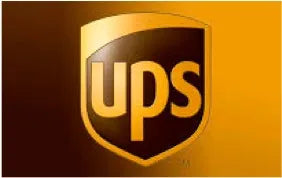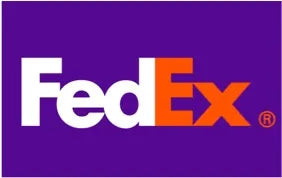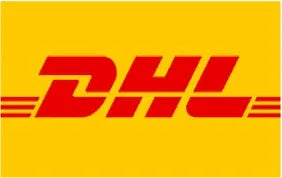In the world of wholesale purchasing, quality control plays a pivotal role in ensuring customer satisfaction and business success. The ability to maintain consistent product quality is paramount for wholesalers to build trust, retain customers, and differentiate themselves in a competitive marketplace. In this blog post, we will explore the significance of quality control in wholesale purchasing, its benefits, and strategies to implement effective quality control measures.
Table of Contents:
I、Understanding Quality Control in Wholesale Purchasing
II、The Benefits of Implementing Quality Control Measures
III、Key Components of an Effective Quality Control System
IV、Utilizing Third-Party Quality Inspection Services
V、Implementing Corrective Actions and Continuous Improvement
VI、Collaborating with Trusted factories
VII、Quality Control Tools and Technologies
VIII、Training and Educating Staff on Quality Control Practices
IX、Conclusion: Investing in Quality Control for Wholesale Success
I、Understanding Quality Control in Wholesale Purchasing
a. Defining Quality Control:
Quality control refers to the systematic measures and processes implemented by wholesalers to ensure that products meet predetermined quality standards and customer requirements. It involves monitoring, inspecting, and assessing various stages of the production and supply chain to identify and rectify any deviations or defects. Quality control aims to deliver products that are consistent, reliable, and meet or exceed customer expectations.
b. Role of Quality Control in Wholesale Industry:
Quality control plays a critical role in the wholesale industry for several reasons:
Consistent Product Quality: Wholesale customers rely on consistent product quality to maintain their own reputation and deliver value to end consumers. Quality control ensures that products consistently meet the agreed-upon specifications, leading to customer satisfaction and loyalty.
Mitigating Risks: Quality control measures help wholesalers identify and address any potential risks or quality issues early on in the production process. By doing so, they can prevent defective or substandard products from reaching customers, thus minimizing financial losses and reputational damage.
Differentiation and Brand Building: Consistently delivering high-quality products sets wholesalers apart from their competitors. A strong reputation for quality can help build trust, attract new customers, and foster long-term business relationships.
Regulatory Compliance: Quality control is essential to ensure compliance with industry regulations and standards. Wholesalers must adhere to product safety and quality guidelines to protect consumers and avoid legal and regulatory repercussions.
Cost Reduction: Implementing quality control measures can lead to cost savings in the long run. By detecting and addressing quality issues early on, wholesalers can avoid costly recalls, returns, and customer complaints, thereby reducing financial burdens.
Understanding the importance of quality control in wholesale purchasing is crucial for wholesalers to prioritize and allocate resources towards maintaining consistent product quality. In the subsequent sections, we will delve into the benefits of implementing quality control measures and explore strategies to effectively implement quality control systems.
II、The Benefits of Implementing Quality Control Measures
Implementing quality control measures in wholesale purchasing offers numerous advantages that contribute to the overall success and reputation of a business. Let's explore some of the key benefits of implementing quality control measures:
Customer Satisfaction and Retention:
Quality control ensures that products meet the desired specifications and performance standards. By consistently delivering high-quality products to customers, wholesalers can enhance customer satisfaction and build long-term relationships. Satisfied customers are more likely to become repeat buyers, leading to increased customer retention and positive word-of-mouth recommendations.
Reputation and Brand Building:
Maintaining consistent product quality establishes a positive reputation and builds trust among customers. Wholesalers known for delivering superior quality products gain a competitive edge in the market and attract more customers. A strong reputation for quality can differentiate a business from competitors, leading to increased brand recognition and customer loyalty.
Minimizing Returns and Complaints:
Implementing quality control measures helps identify and rectify potential quality issues before products reach customers. By minimizing defects, damages, or discrepancies, wholesalers can significantly reduce the number of product returns and customer complaints. This not only saves time and resources but also enhances the overall customer experience.
Ensuring Regulatory Compliance:
Quality control plays a crucial role in ensuring compliance with industry standards and regulations. Wholesalers must adhere to specific quality guidelines and meet safety and performance requirements set by regulatory bodies. By implementing quality control measures, wholesalers can ensure that their products meet these standards, avoiding legal issues and penalties.
Effective quality control measures also contribute to internal operational efficiency, such as reducing rework and waste, improving production processes, and optimizing supply chain management. By identifying and addressing quality issues at an early stage, wholesalers can minimize costs and enhance overall productivity.
III、Key Components of an Effective Quality Control System
A robust quality control system is essential for wholesalers to maintain consistent product quality and meet customer expectations. Implementing the following key components can help ensure effective quality control in wholesale purchasing:
Setting Quality Standards:
Establishing clear and specific quality standards is the foundation of an effective quality control system. These standards should define the desired characteristics, specifications, and performance criteria for the products being purchased. Clear guidelines help factories understand the quality expectations and facilitate consistent production.
factory Selection and Evaluation:
Choosing reliable factories is crucial for maintaining quality control. Conducting thorough factory evaluations, including assessments of their production capabilities, quality management systems, and past performance, helps ensure that factories have the ability to consistently deliver products that meet the established standards.
Pre-production Inspections:
Pre-production inspections involve checking raw materials, components, and production plans before actual manufacturing begins. This step helps identify any potential quality issues early on, allowing for necessary adjustments and preventing defects from occurring in the final products.
In-process Inspections:
In-process inspections occur during the production process to assess product quality at various stages. Inspecting critical checkpoints ensures that quality is maintained throughout the manufacturing process and allows for timely identification and correction of any deviations from the established standards.
Final Product Inspections:
Final product inspections are conducted before shipment to verify that the products meet the predefined quality standards. This involves a comprehensive assessment of product appearance, functionality, and adherence to specifications. Inspections may include sample testing, dimensional checks, and visual inspections to ensure that the final products are free from defects.
Documentation and Record-Keeping:
Maintaining detailed documentation and records of quality control activities is essential for traceability and accountability. This includes recording inspection results, non-conformities, corrective actions taken, and any other relevant information. Documentation provides a reference for future audits, facilitates communication with factories, and aids in continuous improvement efforts.
Implementing these key components within a quality control system helps wholesalers maintain a consistent level of product quality, minimize defects, and mitigate potential risks. By setting standards, selecting reliable factories, conducting inspections at various stages, and maintaining thorough documentation, wholesalers can ensure that their customers receive products that meet or exceed expectations.
IV、Utilizing Third-Party Quality Inspection Services
Implementing a robust quality control system requires a thorough and objective evaluation of products throughout the production process. While internal quality control measures are essential, utilizing third-party inspection services can provide an additional layer of assurance and impartiality. Let's explore the specific benefits and considerations of utilizing third-party quality inspection services in wholesale purchasing:
Advantages of Third-Party Inspections:
a. Impartiality: Third-party inspection agencies are independent entities that have no direct stake in the production or sale of the products. Their unbiased assessments ensure an objective evaluation of quality, helping to identify any potential issues or discrepancies.
b. Expertise and Experience: Quality inspection agencies specialize in assessing and ensuring product quality. They possess the necessary knowledge, expertise, and experience to conduct comprehensive inspections based on industry standards and best practices.
c. Extensive Resources: Third-party inspection services have access to a wide range of resources, including advanced equipment, testing facilities, and a network of trained inspectors. This enables them to conduct thorough inspections, including product sampling, laboratory testing, and compliance verification.
d. Global Coverage: Many third-party inspection agencies have a global presence, allowing them to perform inspections at various production locations worldwide. This is particularly beneficial for wholesalers engaging in international sourcing and purchasing.
Selecting a Reliable Inspection Partner:
a. Accreditation and Certifications: Look for inspection agencies that hold relevant accreditations and certifications. This ensures their adherence to internationally recognized standards and quality management practices.
b. Industry Expertise: Consider inspection agencies that specialize in your specific industry or product category. Their familiarity with the industry standards and requirements enhances their ability to effectively evaluate product quality.
c. Inspection Scope and Services: Evaluate the range of inspection services offered by the agency. Ensure they can cater to your specific needs, including pre-production inspections, in-process inspections, and final product inspections.
d. Reporting and Communication: Assess the agency's reporting capabilities and communication channels. Clear, detailed inspection reports, including photographs and measurements, are essential for decision-making. Timely communication and responsiveness are also crucial for effective collaboration.
e. Cost and Logistics: Compare the cost-effectiveness of different inspection agencies while considering their reliability and services. Additionally, evaluate their ability to manage logistics and meet your inspection timeline requirements.
Utilizing third-party quality inspection services can provide wholesalers with an independent and professional assessment of product quality. These inspections help identify any potential defects, non-compliance issues, or deviations from quality standards. By working with a reliable inspection partner, wholesalers can enhance their quality control efforts, mitigate risks, and ensure consistent product quality throughout their supply chain.
V、Implementing Corrective Actions and Continuous Improvement
Implementing corrective actions and continuous improvement strategies is a crucial aspect of an effective quality control system in wholesale purchasing. These practices help identify and address quality issues, prevent their recurrence, and drive ongoing improvement in product quality. Let's delve into the specific steps involved in implementing corrective actions and continuous improvement:
Identifying and Addressing Quality Issues:
· Conduct thorough inspections and testing at various stages of production to identify any deviations from quality standards.
· Document and analyze quality-related data, including customer complaints, returns, and defect rates, to identify recurring issues.
· Implement effective communication channels to gather feedback from customers, factories, and internal stakeholders regarding quality concerns.
Root Cause Analysis:
· Perform a root cause analysis to identify the underlying reasons for quality issues. This involves analyzing data, conducting investigations, and using problem-solving techniques like the 5 Whys or Fishbone diagrams.
· Identify the key factors contributing to the quality problem, such as factory issues, manufacturing processes, materials, or inadequate quality control procedures.
Implement Corrective Actions:
· Develop specific action plans to address the identified root causes. This may involve collaborating with factories to resolve quality issues or making improvements to internal processes.
· Assign responsibilities and timelines for implementing corrective actions.
· Monitor the progress and effectiveness of the corrective actions and make necessary adjustments as required.
Continuous Monitoring and Evaluation:
· Establish robust monitoring mechanisms to track the effectiveness of implemented corrective actions.
· Conduct regular inspections and audits to ensure compliance with quality standards.
· Analyze data and performance metrics to identify trends, anticipate potential issues, and make proactive improvements.
· Encourage a culture of continuous improvement by involving employees at all levels and fostering a sense of ownership for quality.
By implementing these practices, wholesalers can address quality issues promptly, prevent their recurrence, and drive continuous improvement.
Corrective actions not only enhance product quality but also contribute to building a reputation for reliability and customer satisfaction. Continuous improvement ensures that the quality control system remains responsive and adaptable to changing customer needs and market demands. Remember, quality control is an ongoing process that requires dedication and a commitment to delivering high-quality products to customers.
VI、Collaborating with Trusted factories
Collaborating with trusted factories is crucial for maintaining a high level of quality control in wholesale purchasing. Establishing strong partnerships with reliable factories ensures consistent product quality, timely deliveries, and a smooth supply chain. Here are some key aspects to consider when collaborating with trusted factories:
factory Evaluation and Selection:
Thoroughly evaluate potential factories before entering into a partnership. Assess their reputation, experience, track record, and adherence to quality standards. Look for factories who have a proven history of delivering high-quality products consistently and have a reputation for reliability and professionalism.
Transparent Communication and Expectation Alignment:
Open and transparent communication is essential for effective collaboration. Clearly communicate your quality requirements, specifications, and expectations to the factory. Ensure they understand your quality control processes and are committed to meeting your standards. Establishing a mutual understanding from the outset reduces the chances of misunderstandings and quality issues.
Regular Performance Monitoring:
Maintain regular performance monitoring and evaluation of your factories. Monitor their adherence to quality control measures, product consistency, delivery timelines, and customer feedback. Regularly review and assess their performance to identify any areas for improvement or concerns that need to be addressed promptly.
Collaboration in Problem Solving:
In the event of quality issues or challenges, collaborate with your factories to find effective solutions. Work together to identify the root causes of any quality problems and implement corrective actions. Openly discuss any concerns or issues and seek resolutions that prioritize maintaining high product quality and customer satisfaction.
Continuous Improvement Initiatives:
Encourage your trusted factories to actively participate in continuous improvement initiatives. Collaborate on process enhancements, innovation, and product development. Engage in regular discussions to share insights, industry trends, and best practices. By fostering a culture of continuous improvement, both you and your factories can enhance product quality and stay ahead in the market.
factory Audits:
Conduct periodic factory audits to ensure ongoing compliance with quality control standards. Audits provide an opportunity to assess the factory's processes, facilities, and adherence to quality management systems. It allows you to verify that the factory maintains the necessary infrastructure and procedures to consistently deliver high-quality products.
By collaborating with trusted factories who prioritize quality control, you can establish a reliable supply chain that minimizes quality issues, reduces the risk of product defects, and maintains customer satisfaction. Building strong relationships with factories who share your commitment to quality will contribute to the long-term success of your wholesale business.
VII、Quality Control Tools and Technologies
Quality control tools and technologies play a vital role in ensuring efficient and effective quality control practices in wholesale purchasing. These tools aid in monitoring, measuring, analyzing, and improving product quality. Let's explore some of the key tools and technologies commonly used in quality control:
Statistical Process Control (SPC):
SPC is a statistical tool that helps monitor and control the quality of a product or process. It involves collecting and analyzing data to identify any variations or trends that may impact product quality. SPC charts, such as control charts and process capability charts, provide visual representations of data, enabling wholesalers to make data-driven decisions and take corrective actions when necessary.
Quality Management Software:
Quality management software (QMS) facilitates the efficient management of quality control processes. It offers features such as data collection, analysis, documentation, and reporting, streamlining the quality control workflow. QMS provides a centralized platform for tracking quality metrics, managing factory evaluations, conducting audits, and maintaining records. It helps wholesalers ensure consistency, transparency, and traceability throughout the quality control process.
Inspection Tools:
Inspection tools encompass a wide range of devices used to evaluate product quality. These tools may include measuring instruments, gauges, calipers, micrometers, spectrometers, and colorimeters. They enable wholesalers to assess various quality characteristics such as dimensions, weight, color, texture, and performance. Inspection tools ensure that products meet specific quality standards and conform to customer requirements.
Non-Destructive Testing (NDT):
NDT techniques are employed to examine the quality and integrity of products without causing damage. Common NDT methods include visual inspection, ultrasonic testing, radiographic testing, magnetic particle inspection, and dye penetrant testing. These techniques are particularly useful in assessing the quality of materials, components, and finished products without compromising their usability.
Digital Quality Control Systems:
Digital quality control systems leverage technology to streamline quality control processes and enhance accuracy. These systems utilize sensors, automation, and artificial intelligence to monitor production lines, detect defects, and identify potential quality issues in real-time. They enable wholesalers to achieve faster and more precise inspections, reducing human error and increasing productivity.
factory Evaluation Tools:
factory evaluation tools assist wholesalers in assessing and selecting reliable factories. These tools may involve factory scorecards, performance metrics, and factory rating systems. By evaluating key factors such as product quality, delivery times, customer support, and compliance with regulations, wholesalers can make informed decisions regarding their factory partnerships, ensuring consistent quality throughout the supply chain.
Utilizing quality control tools and technologies empowers wholesalers to implement robust quality control measures, improve operational efficiency, and drive continuous improvement. Whether it's leveraging statistical analysis, adopting quality management software, or employing advanced inspection tools, these technologies enable wholesalers to meet and exceed customer expectations, maintain high product quality, and gain a competitive edge in the marketplace.
VIII、Training and Educating Staff on Quality Control Practices
Proper training and education of staff members are crucial components in establishing and maintaining effective quality control practices within a wholesale organization. By providing employees with the necessary knowledge and skills, businesses can ensure that quality control measures are implemented consistently throughout the entire purchasing process. Here are some key aspects to consider when training and educating staff on quality control practices:
Importance of Training:
Begin by emphasizing the importance of quality control and its impact on customer satisfaction, business reputation, and overall success. Help employees understand that their role in maintaining product quality is vital and directly contributes to the organization's goals and objectives.
Developing Quality Control Skills:
Provide comprehensive training on quality control procedures and techniques. This includes educating staff on how to identify quality issues, perform inspections, and use quality control tools effectively. Offer hands-on training sessions and workshops to reinforce theoretical knowledge with practical application.
Understanding Quality Standards:
Ensure that staff members have a clear understanding of the quality standards and specifications set by the organization. Train them on how to interpret and apply these standards during the inspection process. Emphasize the importance of accuracy, attention to detail, and adherence to quality guidelines.
Collaboration and Communication:
Promote a culture of collaboration and open communication among team members. Encourage them to share their observations, concerns, and ideas for improving quality control processes. Foster a supportive environment where feedback is welcomed and valued.
Continuous Training and Improvement:
Quality control practices and industry standards evolve over time. It is crucial to provide ongoing training and education to keep staff members updated with the latest trends and best practices. Regularly review and update training materials to reflect any changes in quality control procedures.
Cross-Functional Training:
Consider providing cross-functional training opportunities to staff members involved in different stages of the wholesale purchasing process. This enables them to gain a comprehensive understanding of the entire process and how their individual roles impact product quality.
Quality Control Champions:
Identify and designate quality control champions within the organization. These individuals should have a deep understanding of quality control practices and act as mentors or trainers for new employees. They can also serve as a point of contact for addressing quality-related issues or concerns.
Monitoring and Evaluation:
Establish a system to monitor and evaluate the effectiveness of training programs and the implementation of quality control practices. Gather feedback from staff members and use it to make improvements and adjustments to the training process.
By investing in comprehensive training and education on quality control practices, businesses can empower their staff members to take ownership of maintaining product quality. Well-trained employees are more equipped to identify and address quality issues, ensuring that the wholesale purchasing process remains efficient and meets the highest standards of quality.
IX、Conclusion: Investing in Quality Control for Wholesale Success
Quality control is an indispensable aspect of wholesale purchasing, ensuring that products meet or exceed customer expectations. By implementing effective quality control measures, wholesalers can enhance customer satisfaction, build a strong reputation, and minimize returns and complaints. The utilization of third-party inspection services, collaboration with trusted factories, and the implementation of corrective actions and continuous improvement processes are key to maintaining consistent product quality. Investing in quality control is a strategic move that contributes to long-term success in the competitive wholesale industry.
You may also like:
Tips for Building a Strong Relationship with Your Wholesale Factories
How to Avoid Scams and Fraudulent Wholesale Factories Online












0 comentario